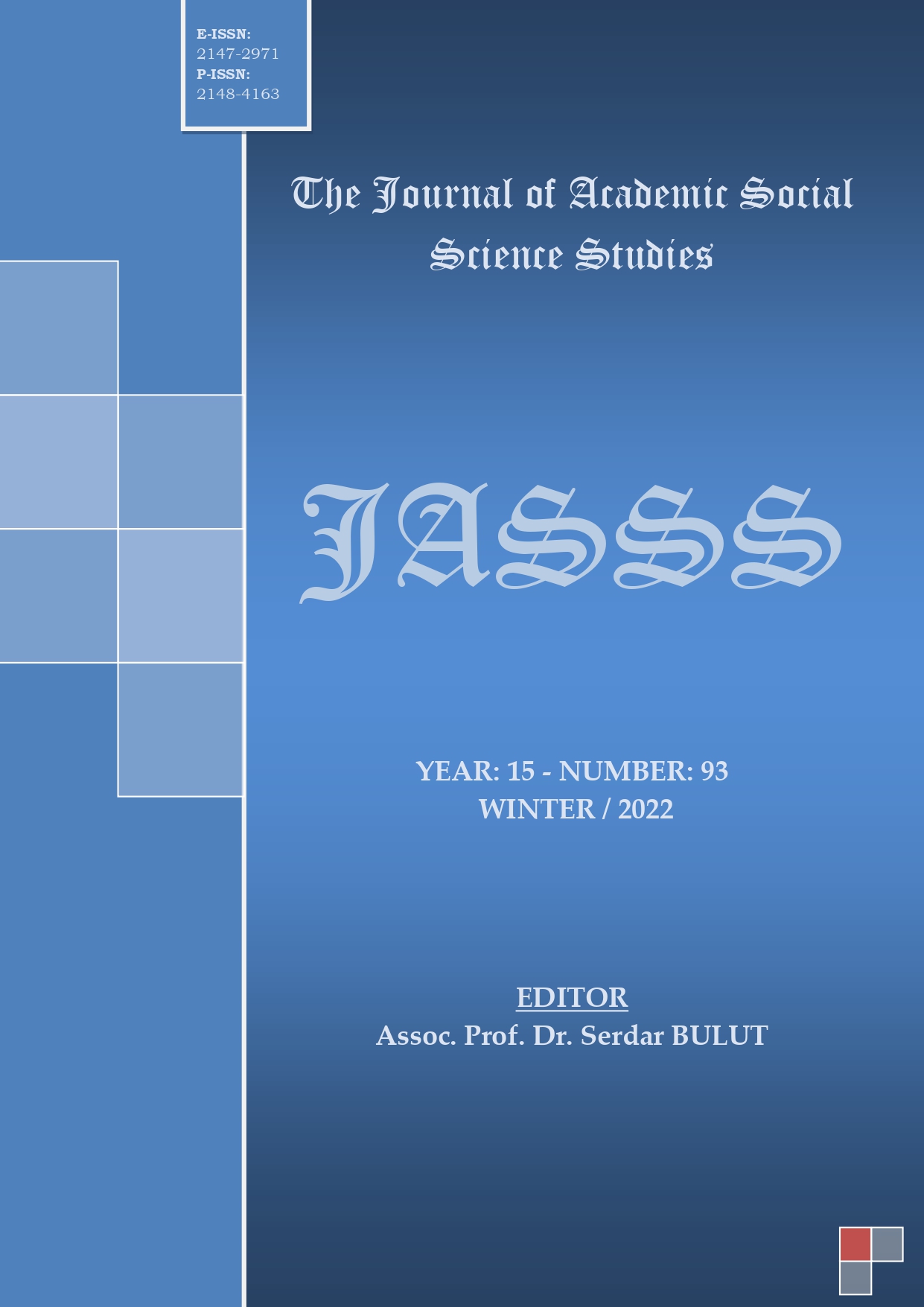Author :
Abstract
Etik, eğitimle güçlü bağları olan çok disiplinli bir kavramdır. Eğitimin her kademesinde doğrudan ya da dolaylı yollarla verilen etik eğitimi, üniversite düzeyinde öğretim etiği, okul etiği ve etik eğitimi olarak sunulur. Üniversite öğrencileri etik içeriği olan derslerle doğrudan, ya da sosyal atmosfer, öğretim yöntemleri, sosyal kabul/red sistemleri ve/veya eğitim kültürü aracılığıyla etik eğitimi alırlar. Öğretmen eğitiminde ise etik, eğitim alanı ile ilişkisi ve öğretmenlik mesleği solayısıyla özel bir öneme sahiptir. Bu bağlamda bu çalışma, öğretmen adaylarının Mach IV ölçeği aracılığıyla etiği nasıl algıladıklarını, etik algılarına etkilerini ve bir meslek olarak öğretmenliğe yönelik tutumlarının etik ile ilişkisini anlamaya çalışmaktadır. Araştırma, İstanbul’da bir devlet üniversitesinde yürütülmüştür. Araştırmanın katılımcılarını ilköğretim, sosyal bilgiler eğitimi, matematik eğitimi ve Türkçe eğitimi bölümlerinden 146 öğrenci oluşturmaktadır. Öğrencilerin etik algılarını etkilemek için cinsiyet ve bölümün etkileri test edilmiştir. Ayrıca, öğrencilerin öğretime yönelik tutumları ile etik algıları arasındaki ilişki de analiz edilmiştir. Öğrencilerin etik anlayışları üzerinde bölüm ve cinsiyetin istatistiki açıdan anlamlı bir fark oluşturmadığı görülmüştür. Bunun yanında öğrencilerin bir meslek olarak öğretmenliğe karşı tutumları ile etik anlayışları arasında görüş ve ahlak istatistiki açıdan anlamlı bir korelasyon bulunmamıştır. Yalnızca etik taktik ile öğretmenliğe karşı tutum arasında istatistiki açıdan anlamlı bir korelasyon bulunmuştur. Elde edilen bulgular, öğretmen etiği ve öğretmen etiği açısından tartışılmıştır.
Keywords
Abstract
Ethics is a multidisciplinary concept with strong ties to education. Ethics education, which is given directly or indirectly at all levels of education, is presented as teaching ethics at university level, school ethics and ethics education. University students receive ethics education either directly through courses with ethical content, or through the social atmosphere, teaching methods, social acceptance/rejection systems and/or educational culture. In teacher education, ethics has a special importance due to its relationship with the field of education and the teaching profession. In this context, thisstudy tries to understand how pre-service teachers perceive ethics thorugh the Mach IV scale, the effects on their ethics perceptions and the relationship between their attitudes towards teaching as a subject and ethics. The research was conducted at a state university in Istanbul. The participants of the study consist of 146 students from departments of primary education, social studies education, mathematics education and Turkish education. The effects of gender and department were tested to affect students' ethical perceptions. In addition, the relationship between students' attitudes towards teaching and their ethical perceptions was also analyzed. It was seen that the department and gender did not make a statistically significant difference on the ethical understanding of the students. In addition, there was no statistically significant correlation between the attitudes of the students towards teaching as a profession and their understanding of ethics. Only a statistically significant correlation was found between ethical tactics and attitude towards teaching. The findings were discussed in terms of teacher ethics and teacher ethics.





